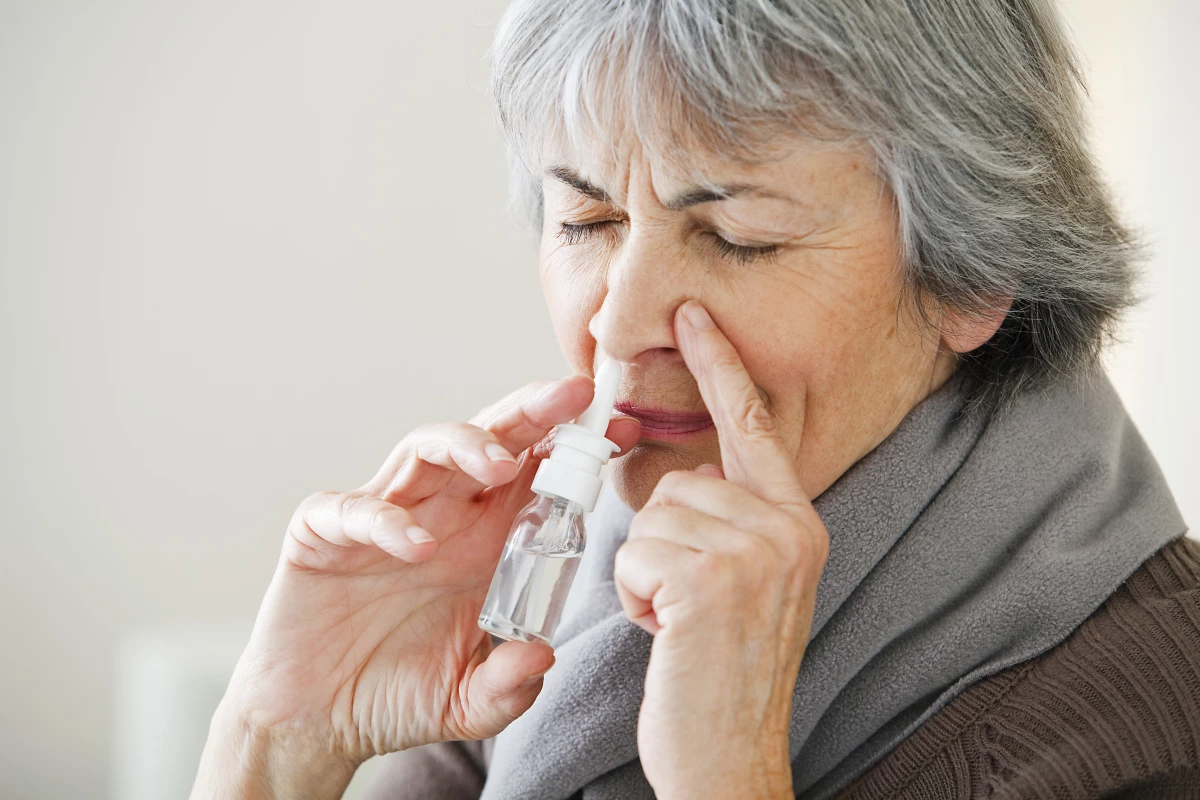Scientists from Osaka City University are reporting successful preclinical tests of a novel nasal spray designed to prevent the neurodegeneration associated with dementia. The spray combines two cheap, pre-existing drugs and was found to improve cognitive function in several different mouse models of dementia.
The new study, published in the journal Frontiers in Neuroscience, follows on from foundational research in 2016 that discovered a common antibiotic called rifampicin can reduce the accumulation of toxic proteins known to be associated with the development of Alzheimer’s disease. Across several mouse experiments the research indicated the antibiotic could prevent neurodegeneration if administered in the very earliest stages of disease. However, long-term treatment with rifampicin in humans was not particularly feasible due to the drug’s occasional adverse effects on the liver.
So in 2018 the researchers investigated whether intranasal administration of rifampicin helped deliver the drug more directly to the brain, avoiding its damaging side effects on the liver. Those findings promisingly suggested intranasal rifampicin led to higher levels in the brain, improved cognitive outcomes and reductions in liver toxicity.
“To further secure the safety of nasal rifampicin, we hypothesized that rifampicin’s undesired actions could be antagonized by other compounds,” the researchers write in their latest study. “Thus, we explored the literature for a compound that possesses hepatoprotective actions opposite to rifampicin and, if possible, additional clinical effects that rifampicin does not show.”
The new study homed in on a natural antioxidant called resveratrol, found in foods such as dark chocolate and red wine, that has recently been studied for its unique anti-aging and anti-cancer properties. The researchers hypothesized a combination of rifampicin and resveratrol, delivered intranasally, may be the key to a safe long-term treatment that can prevent, or at least slow, the progression of dementia.
A fixed-dose rifampicin and resveratrol combination was intranasally administered five times a week for a month to several different mouse models of neurodegeneration, including Alzheimers disease and Lewy body dementia. The results showed the novel combination therapy improved mouse cognition and blocked the accumulation of toxic proteins in the brain.
The combination treatment also showed no signs of liver damage and was more effective at preventing neurodegeneration than delivering each drug by itself. Takami Tomiyama, lead investigator on the new study, says the dose of rifampicin used in the research is tiny compared to what is usually given as an antibiotic. And, when combined with resveratrol, it could plausibly be given to humans safely as a long-term preventative therapy.
“Converted to a human dosage based on body surface area, it becomes 0.081 mg/kg/day,” explains Tomiyama. “Currently, rifampicin is prescribed at 10 mg/kg/day as an antibiotic, and compared to this, we confirmed an effect at a much lower dosage.”
Tomiyama and colleagues have founded a company called Medilabo RFP to begin human clinical trials testing the intranasal spray. These human trials should commence very soon spanning a number of global sites including Japan and the United States.
The new study was published in the journal frontiers in Neuroscience.
Source: Osaka Metropolitan University




